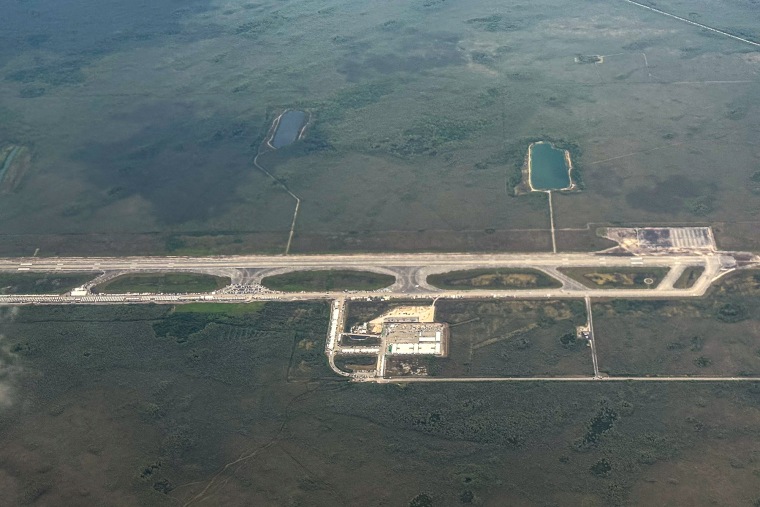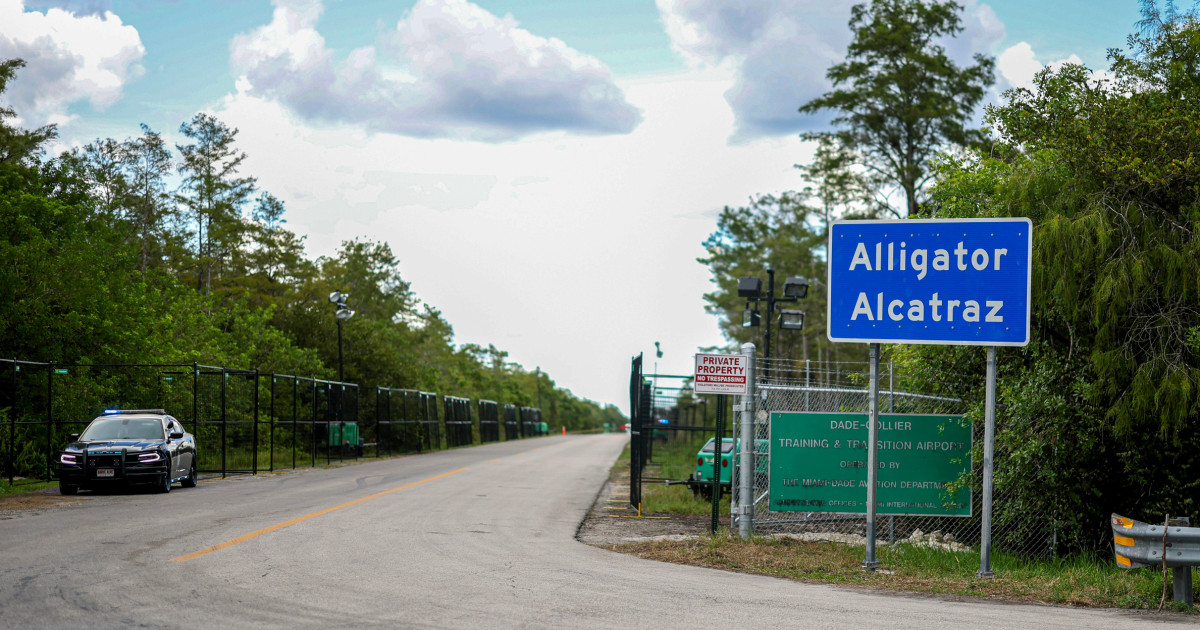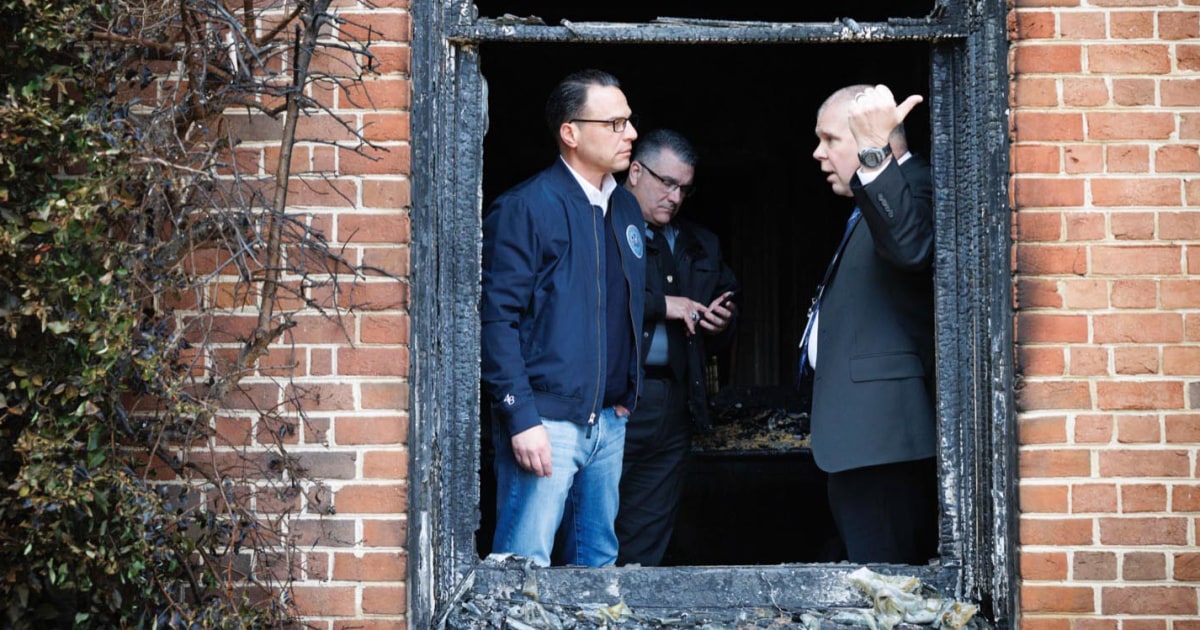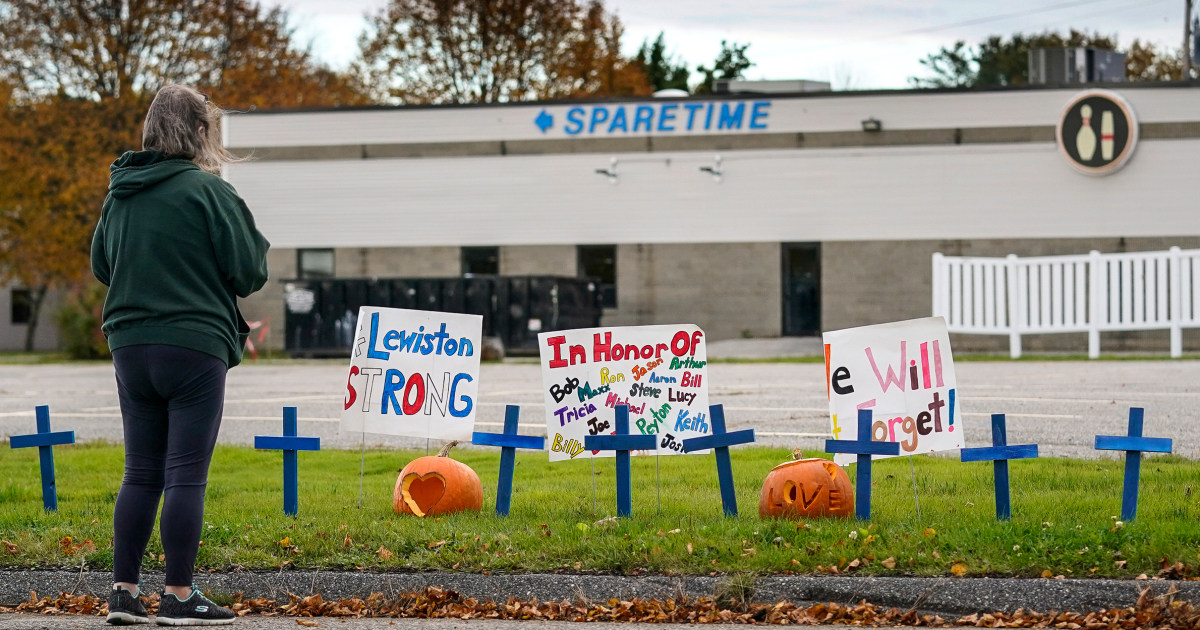MIAMI — A federal judge in Miami ruled Thursday that “Alligator Alcatraz,” the contested migrant detention facility in the Florida Everglades, can remain operational for now but that it cannot be expanded and no additional detainees can be brought in.
U.S. District Judge Kathleen M. Williams entered a preliminary injunction to prevent the installation of any additional industrial-style lighting and any site expansion. Her ruling further prevents “bringing any additional persons … who were not already being detained at the site at the time of this order.”
The ruling was filed late Thursday, allowing the injunction that was requested over National Environmental Policy Act violations.
Within 60 days, the facility must also remove “all generators, gas, sewage, and other waste and waste receptacles that were installed to support this project,” the 82-page ruling said.
It must also remove additional lighting that was installed for the detention facility. Light pollution was a hot topic during the hearings this month.
It’s unclear how the facility will remain operational if those resources are removed.
The government must also remove temporary fencing installed to allow Native American tribe members access to the site consistent with the access they had before the facility was erected.
The defense has appealed the ruling, court records show.
Neither the Justice Department nor the Department of Homeland Security immediately responded to requests for comment. The offices of Florida Gov. Ron DeSantis and the Florida Division of Emergency Management also didn’t immediately respond to requests for comment.
Williams’ decision came down the same day a temporary construction freeze she previously issued expired and after a four-day hearing over environmental concerns about the facility’s location in the sensitive wetlands.
Williams had issued a temporary restraining order this month to temporarily halt operations over a lawsuit alleging the detention facility’s construction skirted environmental laws. That ruling meant no filling, paving or installation of additional infrastructure was allowed, but it didn’t affect the center’s immigration enforcement activity.
A ‘major victory’
The environmental groups that sued demanding an injunction celebrated the ruling in a joint statement late Thursday as “a major victory for Florida’s imperiled wildlife and fragile ecosystems which are threatened by the detention center.”
“Today’s decision means the facility must wind down operations in an orderly fashion within 60 days,” the statement said, saying the center posed a threat to the Everglades ecosystem, endangered species, clean water and dark night skies.
“The state and federal government paved over 20 acres of open land, built a parking lot for 1,200 cars and 3,000 detainees, placed miles of fencing and high-intensity lighting on site and moved thousands of detainees and contractors onto land in the heart of the Big Cypress National Preserve, all in flagrant violation of environmental law,” said Paul Schwiep, counsel for Friends of the Everglades and the Center for Biological Diversity. “We proved our case and are pleased that the court has issued a preliminary injunction against this travesty”
Thursday’s “preliminary injunction will remain in place while the lawsuit challenging the detention center is heard,” the statement said.
The Miccosukee Tribe of Indians of Florida also praised the ruling Thursday.
“This is not our first fight for our land and rights. The Miccosukee Tribe remains steadfast in our commitment to protect our ancestral lands in Big Cypress from development as a permanent detention facility,” Chairman Talbert Cypress said in a statement. “We will continue to fight to ensure that the government does not dodge its legal requirements for environmental review on seized public lands, sacred to our people.”
“When it comes to our homeland, there is no compromise,” he added.
Environmental outcry
Environmental groups and Native Americans had protested the construction of the site, which is part of the Trump administration’s crackdown on immigration, because of the Everglades’ delicate and unique ecosystem, which is home to endangered and threatened species.
Environmental groups sued in June to stop the facility, which opened in July on an airstrip in Ochopee’s Big Cypress National Preserve.
The suit said that the center was built without ecological reviews required under the National Environmental Policy Act and without public notice or comment and that the government failed to comply with other state and federal statutes, including the Endangered Species Act.
The Trump administration downplayed the environmental concerns and argued that the facility was necessary because voters want the federal government to curb illegal immigration.
Schwiep, the attorney, said in court Aug. 13 that the “suggestion there is no environmental impact is absurd.”
“So why here? There are runways elsewhere. … Why the jetport in this area?” Schweip asked. “Alligator Alcatraz. A name just meant to sound ominous. I would submit, judge, this is just a public relations stunt.”

Significance to Miccosukee Tribe
On Aug. 12, the court heard from Amy Castaneda, director of water resources for the Miccosukee Tribe of Indians of Florida. Castaneda said that she has worked with the tribe for 19 years and that the entrance to the jetport where the facility is built is a quarter-mile from the tribe’s land.
Asked what the Everglades land means to the Miccosukee tribe, she replied, “It’s written into the constitution to protect the Everglades because the Everglades protected them when they were hunted by the government.”
Castaneda said that for nearly two decades, there has been “minimal” activity at the jetport but that that changed after June with the construction of the detention facility.
“There’s much more activity there, vehicles going in and out, cars usually isolated on the southside of Tamiami Trail taking photos with the sign. Tankers, protesters, media, people setting up tents to sell merch for Alligator Alcatraz. Just different levels,” she said.
Castaneda said no one from the federal government, the state or any other governmental entity contacted the tribe about the construction.
She said water resources officials for the tribe have collected samples downstream from the facility to test and determine whether there has been a nutrient shift or potential health concerns.
Marcel Bozas, the director of fish and wildlife for the Miccosukee Tribe of Indians of Florida, also testified Aug. 12, noting the airstrip is a couple of miles from the tribe’s sites.
While tribal members can’t access the airstrip, some trails are no longer accessible. Asked about the impact of hunting on the land, Bozas said, “Tribal members are concerned the wildlife they could be formerly hunting for are no longer in that area.” There’s also concern that medicinal plants are affected.








